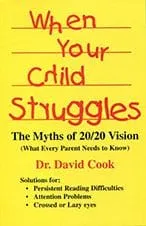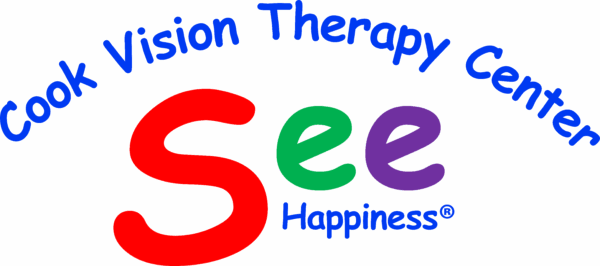Traumatic Brain Injury Vision Rehabilitation
Post-Concussion Syndrome (PCS) arises from a complex mix of physiological, neurological, and psychological factors. Below, we break down the root causes and risk factors linked to prolonged
What Causes Post-Concussion Syndrome?
-
Brain Injury and Neurochemical Disruption
Concussions trigger microscopic damage to brain cells, impairing cerebral blood flow and disrupting critical neurotransmitters. This neurochemical imbalance can delay healing, leading to persistent headaches, dizziness, and cognitive fog. -
Physiological Changes in the Brain
-
Neuroinflammation: Post-traumatic inflammation may hinder neural repair.
-
Autonomic Nervous System Dysfunction: This disrupts heart rate, digestion, and blood pressure, worsening fatigue and dizziness.
-
Metabolic Changes: Reduced energy production in brain cells slows recovery.
-
-
Psychological Factors
Anxiety, depression, or chronic stress can amplify symptom perception. Studies indicate mental health conditions may prolong PCS by weakening the brain’s adaptive response.
Who is at Risk for Prolonged Concussion Symptoms?
-
Gender and Age: Women and older adults show higher susceptibility due to hormonal and age-related neural vulnerability.
-
Prior Concussions: Repeated brain injuries increase PCS risk by up to 60% (based on 2024 clinical data).
-
Pre-Existing Conditions: Migraines, ADHD, or mental health disorders may delay recovery.
Why Do Post-Concussion Symptoms Persist? Science-Backed Reasons
While most recover within weeks, 15-30% of patients develop chronic PCS. Key reasons include:
Neuroinflammation and Metabolic Imbalance
Ongoing inflammation disrupts glucose metabolism, starving the brain of energy needed for repair.
Sensory Processing Disorders
Hypersensitivity to light (photophobia) or sound (hyperacusis) strains the brain’s adaptive capacity.
Sleep Disturbances
Poor sleep quality limits glymphatic system activity, which is critical for flushing brain toxins during rest.
Psychological Stress
Stress hormones like cortisol may weaken neural plasticity, creating a cycle of worsening symptoms.
Traumatic Brain Injury (TBI) often results from blows to the head or body, commonly due to falls, sports injuries, or accidents in Metro Atlanta. At Cook Vision Therapy Center, we understand that over 50% of your brain’s function is tied to vision—which is why TBI can severely disrupt visual processing. For over 40 years, our Atlanta-based specialists have helped patients rehabilitate vision challenges caused by TBI, restoring clarity and comfort in daily life.
Concussion & Post-Concussion Syndrome Care
A concussion—a milder TBI—can temporarily impair brain function, with symptoms typically resolving within weeks. However, if issues like headaches, dizziness, or vision problems persist beyond a month (or three months, per medical guidelines), it may indicate post-concussion syndrome. As Metro Atlanta’s trusted vision therapy experts, we create personalized rehabilitation plans tailored to your symptoms’ severity. Let our team design a program to help you regain confidence in driving, reading, and daily activities.
Common Visual Symptoms of TBI
TBI-related vision disruptions treated at our Atlanta clinic include:
- Physical discomfort: Blurred/double vision, light sensitivity, headaches, dizziness, nausea.
- Daily challenges: Balance issues, confusion, or anxiety while driving.
- Reading difficulties: Eye fatigue, losing focus/place, or reduced comprehension.
Neuro-Optometric Rehabilitation (NOR) in Metro Atlanta
At Cook Vision Therapy Center, we address post-TBI vision challenges through Neuro-Optometric Rehabilitation (NOR). Vision relies on two systems:
-
Central vision: Identifies details and meaning (e.g., reading).
-
Peripheral vision: Guides balance, depth perception, and movement.
After a TBI, these systems can clash, causing confusion, attention struggles, or dizziness. Our Atlanta-based specialists use advanced tools—custom lenses, prisms, filters, and tailored vision therapy—to realign these systems. With 40+ years of experience, our goal is to help you regain clear, comfortable vision to reclaim your daily life.
When to Schedule NOR for TBI Vision Issues
Seek neuro-optometric care at our Metro Atlanta clinic if:
-
Medical specialists confirm your TBI recovery plan and visual symptoms persist.
-
Symptoms (blurred vision, headaches, imbalance) last over a month post-injury.
-
A rehab team addressed other issues, but vision problems remain.
The PCS Diagnostic Process: 4 Critical Steps
-
Comprehensive Medical History Review
-
Providers analyze the nature of the head injury (e.g., sports trauma, car accident) and track symptom progression timelines.
-
Key focus: Duration of symptoms (typically >3 months post-injury) and exclusion of pre-existing conditions.
-
-
Standardized Symptom Assessment Tools
-
Rivermead Post-Concussion Symptoms Questionnaire (RPQ): Quantifies symptom severity (e.g., headaches, dizziness, brain fog) on a 0-4 scale.
-
SCAT6 (Sport Concussion Assessment Tool): Used for athletes to evaluate cognitive and physical function.
-
-
Neurological and Cognitive Testing
-
Balance and Coordination Exams: Assess vestibular dysfunction (e.g., BESS test).
-
Neurocognitive Screenings: Memory, attention, and reaction time tests detect deficits linked to PCS.
-
Autonomic Nervous System Checks: Heart rate variability (HRV) monitoring to identify dysregulation.
-
-
Advanced Imaging to Rule Out Other Injuries
-
MRI or CT Scans: Detect structural abnormalities (e.g., bleeding, swelling) but cannot confirm PCS.
-
Emergent Technologies: fMRI or DTI (Diffusion Tensor Imaging) may reveal subtle neural connectivity issues (still experimental in 2025).
-
Why Is PCS Challenging to Diagnose?
-
Symptom Overlap: Fatigue, mood changes, and headaches mirror conditions like migraines, anxiety, or chronic fatigue syndrome.
-
No Biomarkers: Unlike strokes or tumors, PCS lacks definitive blood tests or imaging markers.
-
Subjectivity: Symptoms rely heavily on patient reporting, requiring trust in provider-patient communication.
Actionable Tips for Managing Post-Concussion Syndrome
1. Track Your Symptoms Daily
Keep a journal of your symptoms, noting when they worsen or improve. This helps you and your healthcare provider identify triggers and adjust your treatment plan.
2. Prioritize Sleep Hygiene
-
Maintain a regular sleep schedule.
-
Avoid screens at least an hour before bedtime.
-
Create a dark, quiet, and cool sleeping environment.
-
Limit caffeine and heavy meals before bed.
3. Manage Stress and Anxiety
-
Practice relaxation techniques like deep breathing, meditation, or yoga.
-
Engage in gentle physical activity as tolerated.
-
Reach out for psychological support or counseling if needed.
4. Pace Your Activities
-
Break tasks into smaller steps.
-
Take frequent breaks during work or study.
-
Avoid multitasking and focus on one activity at a time.
5. Protect Your Head
-
Avoid situations with a high risk of re-injury until fully recovered.
-
Use protective gear during sports or activities.
Communicate Openly with Your Healthcare Team
-
Be honest about your symptoms and concerns.
-
Ask questions to understand your diagnosis and treatment options.
-
Seek referrals to specialists if symptoms persist or worsen.
For More Information
Unsure if NOR is right for you? Call Cook Vision Therapy Center today for a complimentary phone consultation. Our patient consultants will assess your needs and guide you toward solutions. Let Atlanta’s trusted neuro-optometric team help you achieve lasting visual recovery.
Questions & Answers: Traumatic Brain Injury (TBI) Vision Care
-
What causes vision problems after a TBI?
TBI disrupts the brain’s central and peripheral vision systems, which control detail recognition, balance, and spatial awareness. This misalignment, often from head trauma, leads to blurred vision, dizziness, or light sensitivity. Cook Vision Therapy Center in Metro Atlanta specializes in rehabilitating these issues through Neuro-Optometric Rehabilitation (NOR).
-
How does TBI affect balance and depth perception?
-
Where can I get neuro-optometric rehabilitation in Metro Atlanta?
-
Why should TBI patients seek vision therapy?
-
When should I seek help for post-TBI vision symptoms?
-
Will TBI-related vision issues resolve without treatment?
-
How long do post-concussion syndrome symptoms last?
-
What are common visual symptoms of TBI?
-
Who qualifies for Neuro-Optometric Rehabilitation (NOR)?
-
What treatments does Cook Vision Therapy Center offer for TBI?
-
What is traumatic brain injury vision rehabilitation?
-
How does a brain injury affect vision?
-
Who should consider vision rehabilitation after a concussion or TBI?
-
How does vision therapy help after a traumatic brain injury?
-
When should I start vision rehabilitation after a brain injury?
-
Can vision rehabilitation be combined with other therapies?
-
Is vision therapy effective for mild traumatic brain injury?
-
Can children benefit from vision rehabilitation after a concussion?
-
Do I need a referral to start vision rehabilitation?
Check Out Our Resources
Dr. Cook’s Publications:
- Authored books VISUAL FITNESS and WHEN YOUR CHILD STRUGGLES.
- Published articles in top optometric journals.
- His article “Eyesight, infinity and the human heart” was voted “Best Non-Technical Article” by the Association of Optometric Editors.





